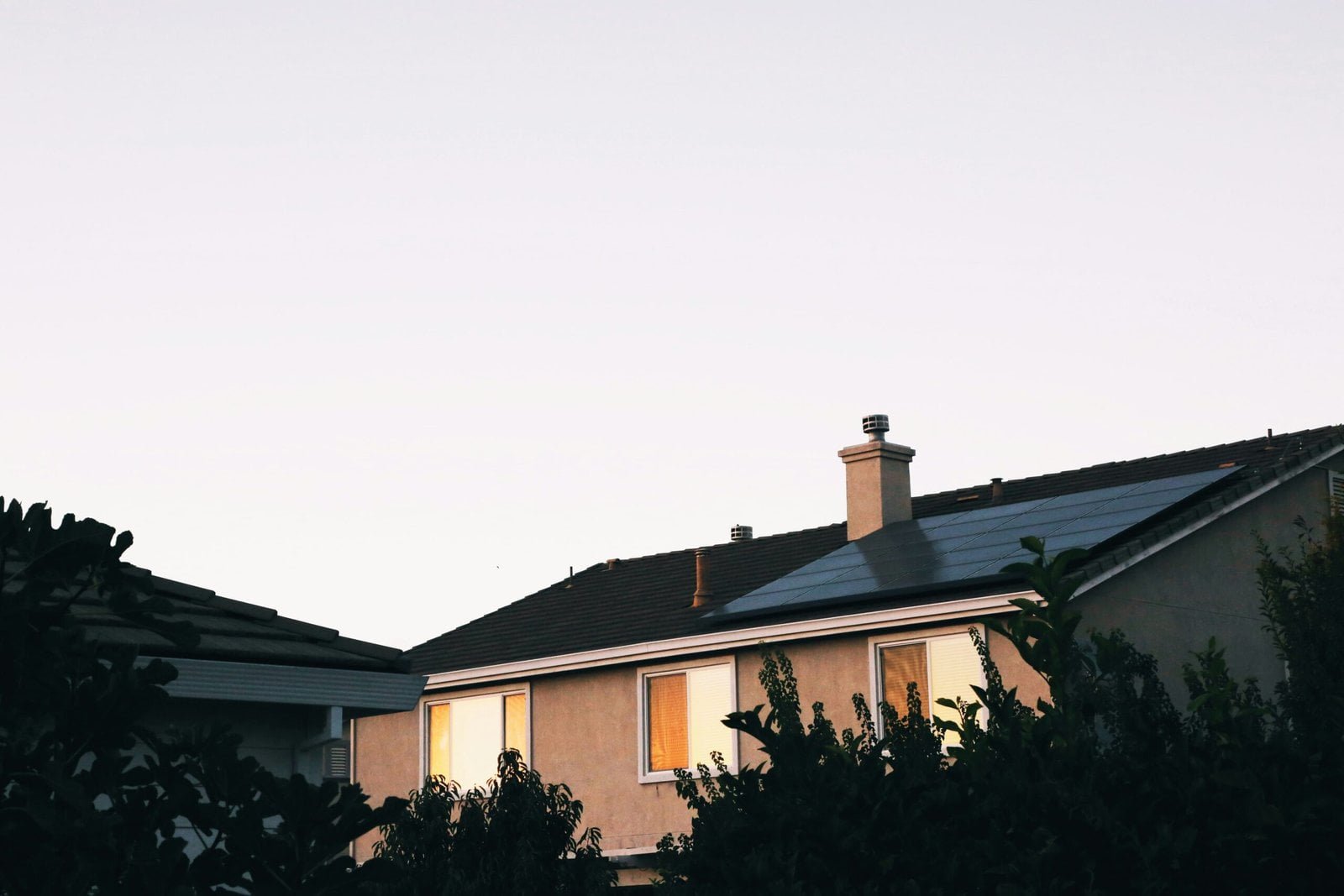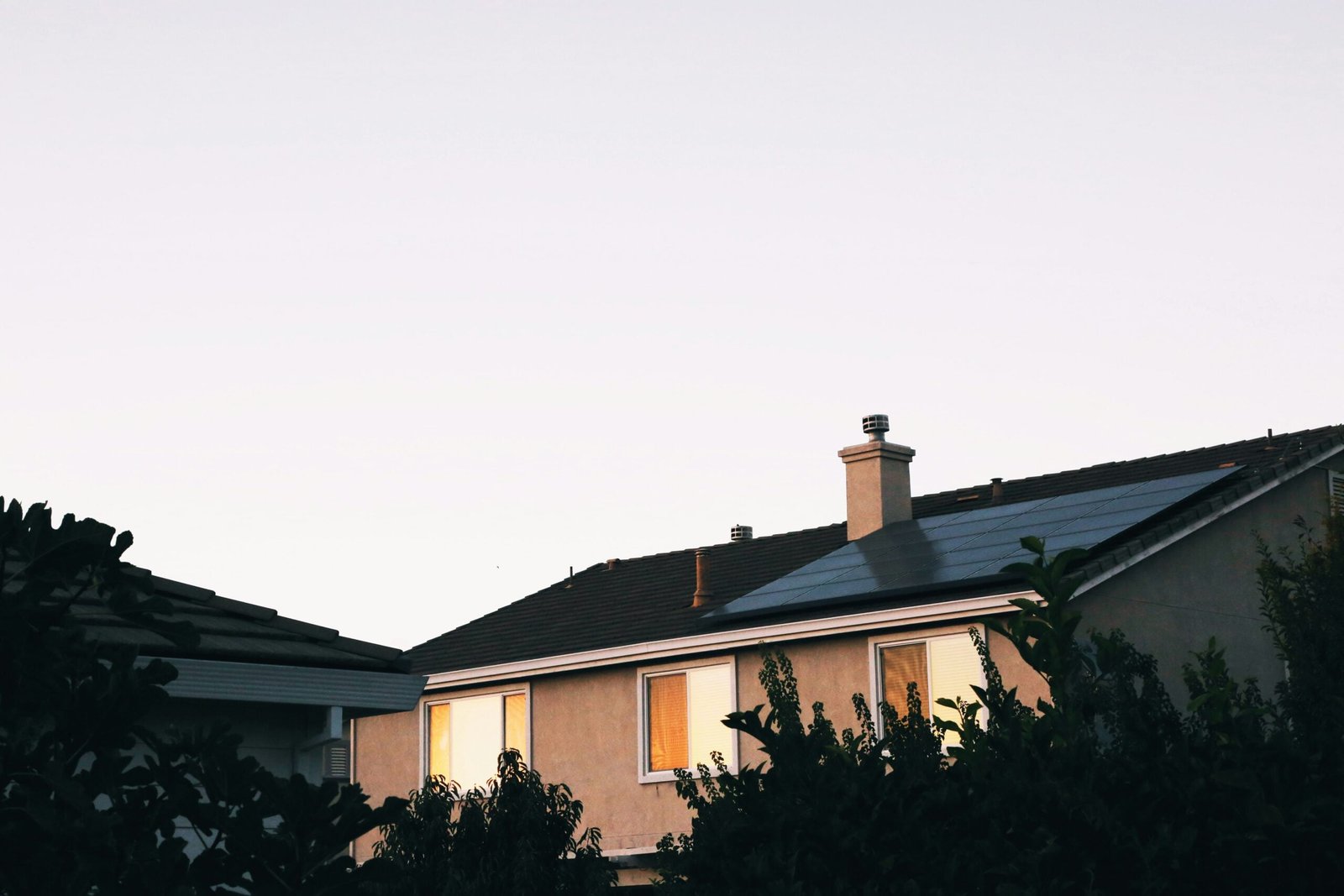
Introduction to Solar Panel Maintenance
Solar panels are a significant investment in renewable energy, offering a sustainable way to reduce electricity bills and carbon footprints. To maximize their efficiency and lifespan, regular maintenance is crucial. Over time, solar panels can accumulate dirt, dust, bird droppings, and other debris on their surface. These contaminants can create a thin film that obstructs sunlight, potentially reducing the panels’ ability to convert solar energy into electricity. Thus, maintaining clean solar panels is vital for ensuring they operate at peak performance.
Understanding the impact of cleanliness on solar panel efficiency is key. Even a small amount of dirt can block solar cells, leading to a measurable decrease in energy output. Studies have shown that dirty panels can lose up to 20% of their efficiency, which translates to less energy production and higher utility costs. Additionally, continued neglect can lead to more severe problems, such as hotspots, which can damage the panels over time.
Proper maintenance involves more than just occasional cleaning. It includes regular inspections to check for any signs of wear or damage, such as cracks or loose connections, which could affect the panels’ performance. By incorporating a consistent maintenance routine, homeowners and businesses can ensure their solar panels remain in optimal condition, providing reliable and efficient energy production for years to come.
This blog post will delve into the specifics of whether solar panels need to be cleaned, the best practices for cleaning them, and how frequently this maintenance should be performed. By understanding the importance of clean solar panels and implementing the right cleaning techniques, solar panel owners can protect their investment and continue to benefit from sustainable energy.
The Importance of Clean Solar Panels
Maintaining the cleanliness of solar panels is paramount for maximizing their efficiency and longevity. When dirt, dust, bird droppings, and other contaminants accumulate on the surface of solar panels, they obstruct sunlight from reaching the photovoltaic cells. This obstruction can significantly diminish the energy production capacity of the panels. Studies suggest that a substantial reduction in sunlight exposure can result in a decrease of up to 25% in energy output, depending on the extent of the contamination.
The financial implications of reduced efficiency are considerable. Lower energy production means that homeowners and businesses may not fully capitalize on their investment in solar technology. The anticipated savings on electricity bills may fall short, elongating the payback period for the installation costs of solar panels. Additionally, for those who sell surplus energy back to the grid, a drop in efficiency translates to reduced revenue streams.
Regular cleaning of solar panels ensures they operate at their optimal capacity. By maintaining a clean surface, one can ensure that the maximum amount of sunlight is converted into usable energy. This not only boosts immediate energy production but also contributes to the long-term reliability and durability of the solar panels. Regular maintenance can prevent the buildup of corrosive substances that may degrade the materials of the panels over time.
Furthermore, the benefits of regular cleaning extend beyond just financial gains. Clean solar panels contribute to the broader goals of sustainability and energy independence. By ensuring optimal performance, solar panel owners can reduce their reliance on non-renewable energy sources, thereby minimizing their carbon footprint. In essence, maintaining clean solar panels is not just a matter of economic prudence but also an environmental responsibility.
Factors Affecting Solar Panel Cleanliness
Solar panels are exposed to a variety of environmental elements that can significantly affect their cleanliness and overall efficiency. One of the primary factors influencing the accumulation of dirt on solar panels is their location. Urban settings often experience higher levels of pollution, smog, and dust, which can settle on the panels and reduce their efficiency. Conversely, rural areas may encounter less pollution but can still experience dirt accumulation from agricultural activities, such as plowing and harvesting, which can stir up dust and debris.
Weather conditions also play a crucial role in the cleanliness of solar panels. For instance, regions that experience frequent rain can benefit from the natural cleaning action of rainfall, which helps to wash away dust and debris. However, in areas prone to prolonged dry spells or drought, there is a higher likelihood of dirt and dust settling on the panels. Additionally, snow can cover solar panels entirely, blocking sunlight and hindering their performance until it melts or is removed.
Dust storms are another significant environmental factor that can severely impact the cleanliness of solar panels. These storms can transport large amounts of dust and sand, which can accumulate on the panels and obstruct sunlight. Similarly, bird droppings can be a considerable nuisance, particularly in areas with high bird populations. These droppings not only block sunlight but can also be corrosive, potentially damaging the panels over time.
Pollen is yet another factor that can affect solar panel cleanliness, especially during the spring season. High pollen counts can lead to a sticky layer of residue on the panels, which may require more frequent cleaning to maintain optimal performance. Understanding these various factors helps solar panel owners determine the appropriate cleaning frequency to ensure their systems operate efficiently.
How Often Should Solar Panels Be Cleaned?
Determining the optimal frequency for cleaning solar panels involves several key factors, such as geographic location, environmental conditions, and the specific installation setup. Typically, solar panels should be cleaned at least once or twice a year to maintain peak performance. However, areas with high levels of dust, pollen, bird droppings, or pollution may necessitate more frequent cleaning.
Geographic location plays a crucial role in the frequency of cleaning. For instance, panels installed in desert regions or near farmland may accumulate dust and debris more rapidly than those in urban or coastal areas. Similarly, solar panels situated under large trees or in areas frequented by birds can become dirty quicker, thus requiring more regular cleaning.
Environmental conditions, such as seasonal weather patterns, also impact the cleaning schedule. During dry seasons, dust and dirt can accumulate more quickly, while rainy seasons may naturally wash away some of the debris. However, relying solely on rainwater is not advisable as it may not sufficiently remove all residues, especially in areas with high pollution levels.
Monitoring the performance of your solar panels can provide valuable insights into when cleaning is necessary. A noticeable drop in energy output may indicate that the panels are dirty and need attention. Many solar panel systems come equipped with monitoring tools that track energy production and can alert you to any significant decrease in efficiency. Regularly reviewing these metrics can help you determine the best cleaning schedule for your specific setup.
In summary, while a general recommendation is to clean solar panels at least once or twice annually, individual circumstances may require more frequent maintenance. By considering geographic location, environmental conditions, and closely monitoring panel performance, you can develop a cleaning routine that ensures your solar panels operate at their highest efficiency.
DIY Solar Panel Cleaning: Step-by-Step Guide
Maintaining the efficiency of your solar panels is crucial for maximizing energy output, and regular cleaning plays a significant role in this. If you decide to clean your solar panels yourself, follow this step-by-step guide to ensure you do it safely and effectively.
Safety Precautions
Before you begin, prioritize your safety. Always turn off your solar panel system to avoid any electrical hazards. If your panels are located on the roof, use a sturdy ladder and wear non-slip shoes for stability. It’s advisable to clean your panels on a cool, overcast day or during the early morning or late afternoon to prevent the water and cleaning solution from evaporating too quickly.
Necessary Tools and Materials
Gather the following tools and materials for cleaning your solar panels:
- Soft brush or sponge
- Bucket of lukewarm water
- Mild, non-abrasive detergent
- Soft squeegee
- Garden hose with a spray nozzle
- Safety gear (gloves, non-slip shoes)
The Cleaning Process
Begin by rinsing the solar panels with clean water from the garden hose to remove loose dirt and debris. Use a soft brush or sponge dipped in the soapy water to gently scrub the surface of the panels. Avoid using abrasive materials or harsh chemicals that could scratch or damage the panels. After scrubbing, rinse the panels thoroughly with water to remove any soap residue. Use a soft squeegee to remove excess water, preventing streaks and water spots.
Additional Tips
To maintain the optimal performance of your solar panels, clean them at least twice a year or more frequently if you live in a dusty area. Avoid cleaning on windy days to reduce the risk of debris blowing onto the panels during the process. Regularly inspect your panels for any signs of damage or wear and tear, and consult a professional if you notice any issues.
By following these steps and taking the necessary precautions, you can ensure your solar panels remain clean and efficient, contributing to a more sustainable energy future.
Hiring Professional Solar Panel Cleaning Services
For many homeowners and businesses, the task of cleaning solar panels can be daunting. This is where hiring professional solar panel cleaning services becomes an attractive option. Professional services offer several benefits that can ensure your solar panels are maintained optimally.
One of the primary advantages of hiring professionals is their expertise. Trained technicians utilize specialized equipment and techniques to clean solar panels effectively without causing any damage. They are knowledgeable about different types of panels and the specific cleaning methods required, ensuring that the panels are cleaned safely and efficiently.
Another benefit is the time and effort saved. Cleaning solar panels, especially those installed on rooftops or in large arrays, can be a time-consuming and physically demanding task. By outsourcing this job, you can free up your time for other important activities while ensuring your panels are in peak condition.
When selecting a professional cleaning service, it’s important to consider several factors. Firstly, check for certifications and experience. A reputable service provider should have the necessary credentials and a proven track record in solar panel maintenance. Reading customer reviews and asking for references can also provide insight into the quality of their work.
Additionally, inquire about the cleaning methods and products used. Environmentally friendly and non-abrasive cleaning solutions are preferable as they protect both the panels and the surrounding environment. It’s also crucial to ensure that the company has insurance coverage to protect against any potential damage during the cleaning process.
Regarding costs, professional solar panel cleaning services can vary depending on the size of the installation and the level of dirt and debris. On average, homeowners might expect to pay between $150 to $350 for a standard cleaning session. While this may seem like an added expense, the potential increase in energy efficiency and the longevity of your solar panels can make it a worthwhile investment.
Common concerns about professional services often revolve around the frequency of cleaning and potential disruption. Most services recommend a bi-annual cleaning schedule, though this can be adjusted based on local conditions such as pollution levels and weather patterns. Professional cleaning is typically conducted with minimal disruption, allowing for continued use of your solar system without significant downtime.
In summary, hiring professional solar panel cleaning services offers a practical and effective solution for maintaining the efficiency and longevity of your solar energy system. By considering the expertise, methods, and costs involved, you can make an informed decision that best suits your needs.
Common Mistakes to Avoid When Cleaning Solar Panels
When it comes to maintaining the efficiency of your solar panels, proper cleaning is crucial. However, several common mistakes can jeopardize the performance and longevity of your solar energy system. One major error is using abrasive materials. Abrasive sponges or harsh chemicals can scratch the surface of your panels, reducing their ability to capture sunlight effectively. Instead, opt for soft sponges and gentle, non-abrasive cleaning agents to ensure a thorough yet safe cleaning process.
Another frequent mistake is cleaning solar panels during peak sunlight hours. Cleaning in direct sunlight can cause the cleaning solution to evaporate quickly, leaving streaks and residues that impair the panel’s efficiency. It is advisable to clean your solar panels early in the morning or late in the afternoon when the sun is not at its highest. This approach allows for a more effective and safer cleaning process.
Ignoring safety precautions can also lead to serious consequences. Solar panels are typically installed on rooftops, making them difficult to access and clean without proper safety equipment. Always use a stable ladder and secure yourself with a harness if necessary. Additionally, avoid stepping directly on the panels as this can cause damage. If you are unsure about your ability to clean the solar panels safely, consider hiring a professional service to do the job.
Lastly, neglecting regular maintenance can lead to long-term issues. Dirt, dust, and debris can accumulate over time, significantly reducing the panels’ efficiency. Regular inspections and cleaning schedules are essential to keep your solar system operating at peak performance. Utilize monitoring systems that can alert you when there is a drop in energy production, signaling that it might be time for a clean.
By avoiding these common mistakes and following best practices, you can ensure that your solar panels remain efficient and functional for years to come.
Maintaining Solar Panel Efficiency Beyond Cleaning
Beyond the essential task of cleaning, maintaining the efficiency of solar panels involves a comprehensive approach. One key aspect is monitoring the surrounding environment to ensure that the panels receive maximum sunlight. Over time, trees, bushes, and other vegetation can grow and potentially cast shadows on the panels. Regularly trimming these plants can significantly enhance the amount of sunlight captured, thus improving the overall energy output.
In addition to environmental management, regular inspections for damage or wear are crucial. Solar panels are exposed to various weather conditions, which can lead to physical damage or the degradation of materials. It is advisable to conduct periodic visual inspections to check for cracks, chips, or any other signs of deterioration. Small issues, if left unaddressed, can escalate and affect the efficiency of the solar panels. Professional inspections can also identify underlying issues that may not be immediately visible.
Proper installation and positioning of solar panels are fundamental for maximizing efficiency. Panels should be installed at an optimal angle and orientation to capture the maximum amount of sunlight throughout the day and across different seasons. Ensuring that the panels are securely mounted and that the wiring is intact can prevent energy losses. In some cases, repositioning or adjusting the tilt of the panels might be necessary to adapt to seasonal changes in the sun’s trajectory.
Incorporating these practices into your solar panel maintenance routine can significantly enhance their performance and longevity. By adopting a holistic approach that includes environmental management, regular inspections, and proper installation, you can ensure that your solar panels operate at peak efficiency, thereby maximizing the return on your investment in renewable energy.


